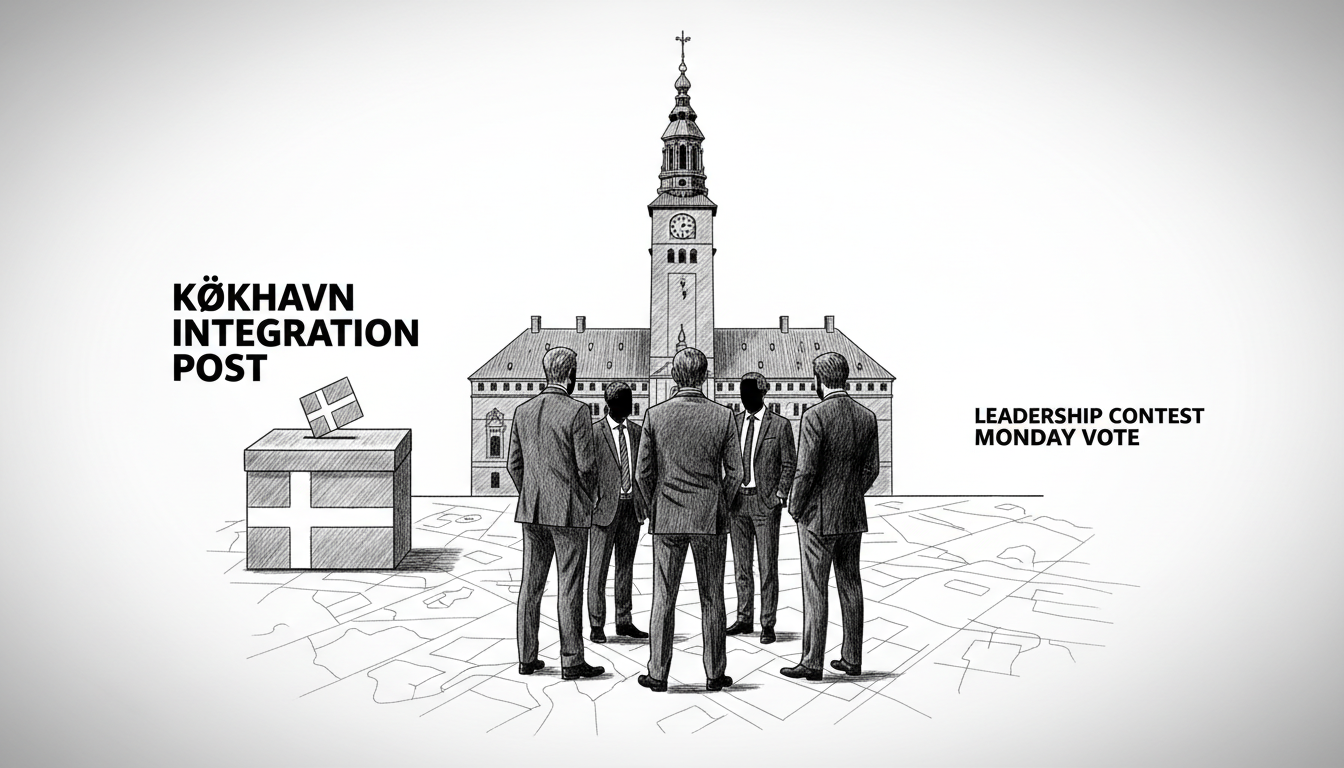Another candidate has entered the race for Copenhagen's integration and employment mayor position, creating a five-way contest within the Social Democratic party. Laura Rosenvinge announced her candidacy Thursday following the withdrawal of former frontrunner Pernille Rosenkrantz-Theil. The political shakeup reveals deeper tensions within Denmark's governing party as it navigates complex integration challenges.
Rosenvinge describes herself as a progressive Social Democrat who takes on fights others avoid. Her nomination comes from the Brønshøj-Vanløse-Husum district where she serves on the city council. This leadership vacuum emerged after Rosenkrantz-Theil's unexpected exit from politics following election setbacks.
Four other local politicians now compete for the same position: Mette Reissmann, Yildiz Akdogan, Andreas Keil and Lars Aslan. Copenhagen Social Democrats have called an extraordinary meeting with 128 delegates voting Monday evening. The winner will oversee integration policy in Denmark's capital city, a role carrying national significance.
This political drama unfolds against Denmark's ongoing integration challenges. Copenhagen integration efforts consistently face scrutiny as the city manages diverse communities. The new mayor will inherit responsibility for employment programs affecting both Danish-born residents and immigrant populations.
Danish society news frequently highlights integration outcomes. Recent statistics show varying employment rates among different immigrant groups in urban centers. The Copenhagen integration portfolio demands balancing social welfare principles with practical labor market policies.
Denmark social policy traditionally emphasizes active labor market participation. The welfare system depends on high employment across all demographic groups. Copenhagen's next integration mayor must address these expectations while managing realistic timelines for social inclusion.
Local political observers note the timing complicates policy continuity. Denmark immigration policy remains a nationally sensitive topic, with municipal implementations closely watched. The leadership contest delays decision-making on several pending integration initiatives.
Community centers across Copenhagen municipalities await the outcome. These facilities serve as crucial touchpoints for integration services and employment guidance. Staff express hope for stable leadership following the political uncertainty.
The five-candidate field suggests no clear consensus within party ranks. Some candidates emphasize traditional social democratic values while others advocate policy innovations. This diversity of approaches reflects broader debates about Denmark's integration future.
Monday's vote will determine more than just a political appointment. It signals the Social Democrats' direction on urban integration policy during a period of national attention. The outcome may influence how other Danish municipalities approach their own integration challenges.

